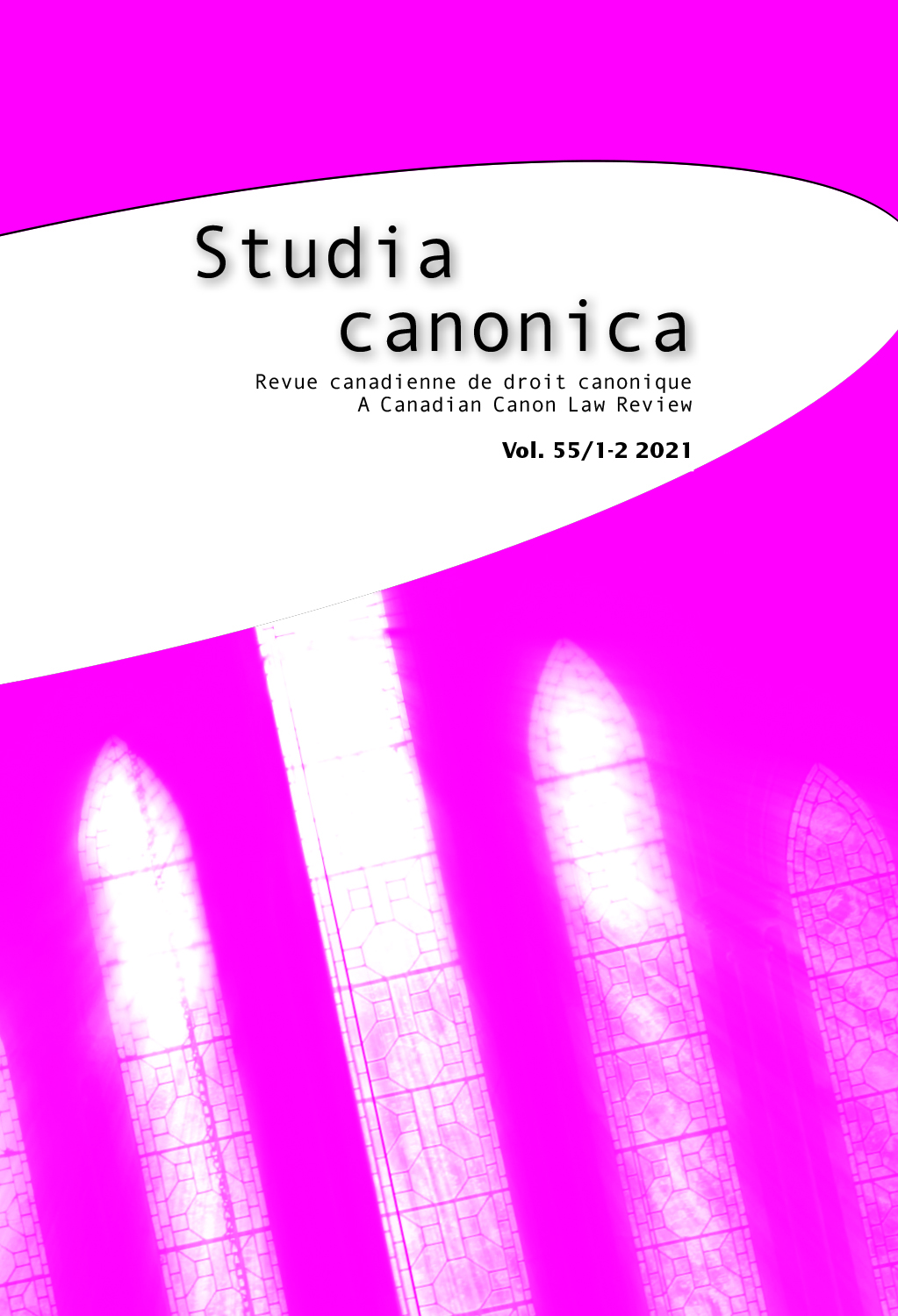 previous article in this issue previous article in this issue | next article in this issue  |

Preview first page |
Document Details : Title: Le Motu Proprio Traditionis custodes Subtitle: L'avenir du rite romain ancien en question Author(s): BERTHE, Pierre-Marie Journal: Studia Canonica Volume: 56 Issue: 1 Date: 2022 Pages: 223-243 DOI: 10.2143/STC.56.1.3290860 Abstract : Le motu proprio Traditionis custodes (16 juillet 2021) restreint fortement l’usage du missel de 1962. Prenant acte que la liturgie préconciliaire est instrumentalisée par des groupes qui critiquent VaticanII et menacent l’unité ecclésiale, François déclare que le missel issu de la réforme de 1970 est la seule expression de la lex orandi dans l’Église latine. Les évêques ont la faculté d’autoriser des célébrations selon le missel ancien en dehors des églises paroissiales pour des groupes déjà constitués, mais ils ne peuvent ériger de paroisses personnelles autour de cette liturgie. Ces mesures appellent des éclaircissements. C’est pourquoi cet article propose quelques réflexions sur le retour au régime de l’indult, l’adhésion aux enseignements du concile Vatican II, le cadre canonique offert à l’ancien missel, l’avenir des instituts érigés par la Commission pontificale Ecclesia Dei, le maintien des normes antérieures compatibles avec la nouvelle discipline. The motu proprio Traditionis custodes (16 July 2021) severely restricts the use of the 1962 Missal. Noting that the pre-conciliar liturgy is employed by some groups which criticize Vatican II and threaten ecclesial unity, Francis declares that the Missal resulting from the reform of 1970 is the unique expression of the lex orandi in the Latin Church. Bishops have the power to authorize celebrations according to the former Missal outside parish churches for groups already constituted, but they cannot set up personal parishes on the basis of this liturgy. These measures require clarification. This article offers some reflections on the motu proprio, treating: the return to the regime of the indult, adherence to the teachings of the Second Vatican Council, the canonical framework for the old Missal, the future of the institutes erected by the Pontifical Commission Ecclesia Dei, and the maintenance of earlier norms that are compatible with the new discipline. |
|


